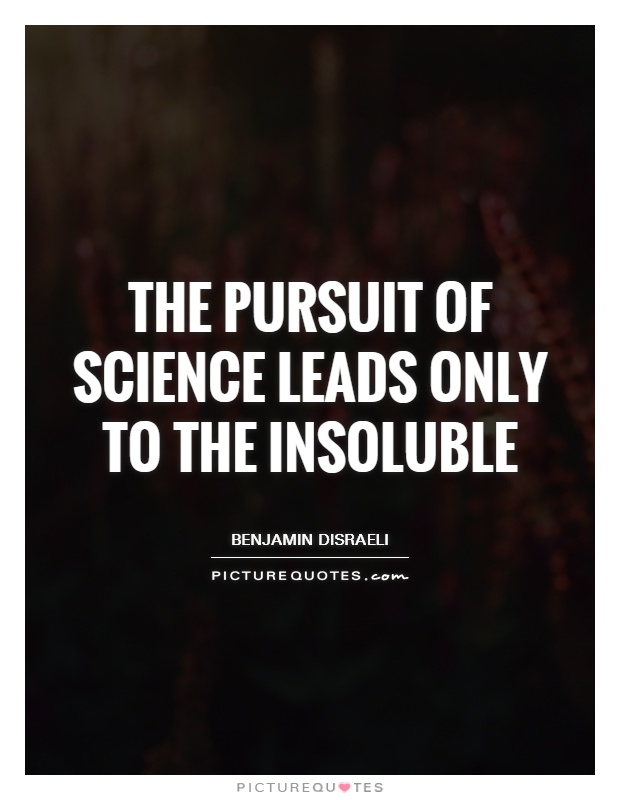The pursuit of science leads only to the insoluble

The pursuit of science leads only to the insoluble
Benjamin Disraeli, a prominent British statesman and novelist, was known for his wit, intelligence, and keen understanding of human nature. He was also a firm believer in the power of science and technology to improve society and advance human knowledge. However, Disraeli was also aware of the limitations of science and the inherent mysteries of the universe that may never be fully understood.In his famous quote, "The pursuit of science leads only to the insoluble," Disraeli captures the essence of the paradoxical nature of scientific inquiry. On one hand, science has made tremendous progress in unraveling the mysteries of the natural world and has led to countless technological advancements that have transformed human society. On the other hand, the more we learn about the universe, the more we realize how much we still don't know.
Disraeli understood that science is a never-ending quest for knowledge, and that each new discovery only raises more questions and challenges our existing beliefs and assumptions. The pursuit of science can lead to breakthroughs and innovations, but it can also lead to dead ends and unanswered questions. In this sense, science is both a source of enlightenment and frustration, as it constantly reminds us of the limits of human understanding.
Despite the inherent uncertainties and complexities of science, Disraeli believed that it was essential for human progress and the betterment of society. He recognized the importance of scientific inquiry in expanding our knowledge and improving our lives, even if it ultimately leads to more questions than answers. For Disraeli, the pursuit of science was a noble and worthwhile endeavor, even if it ultimately leads to the insoluble.












 Friendship Quotes
Friendship Quotes Love Quotes
Love Quotes Life Quotes
Life Quotes Funny Quotes
Funny Quotes Motivational Quotes
Motivational Quotes Inspirational Quotes
Inspirational Quotes